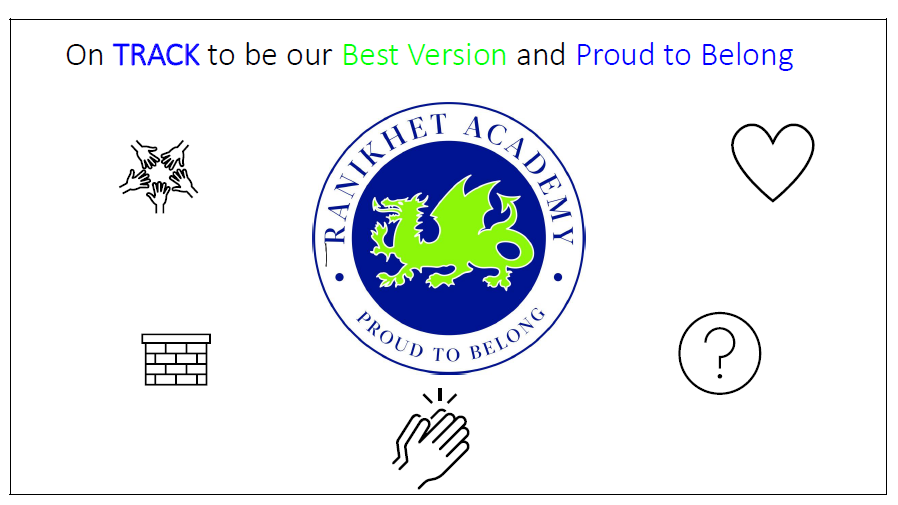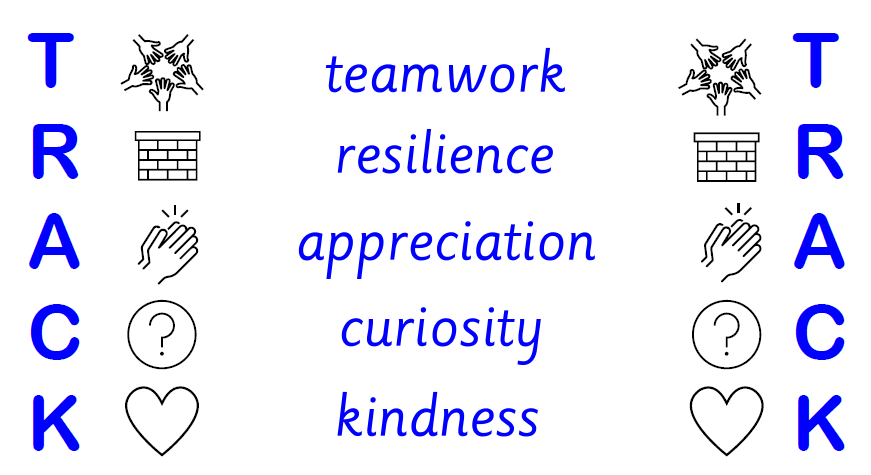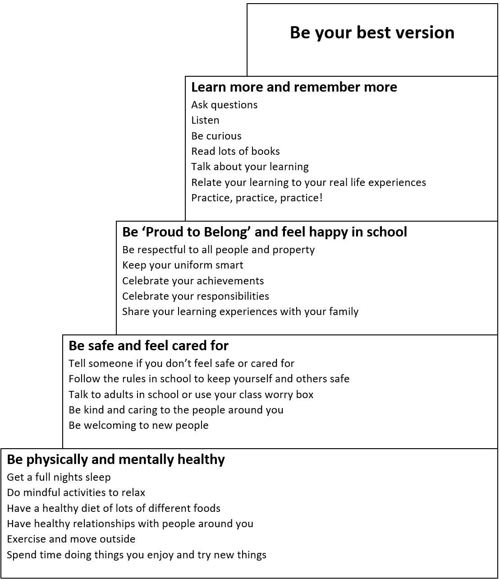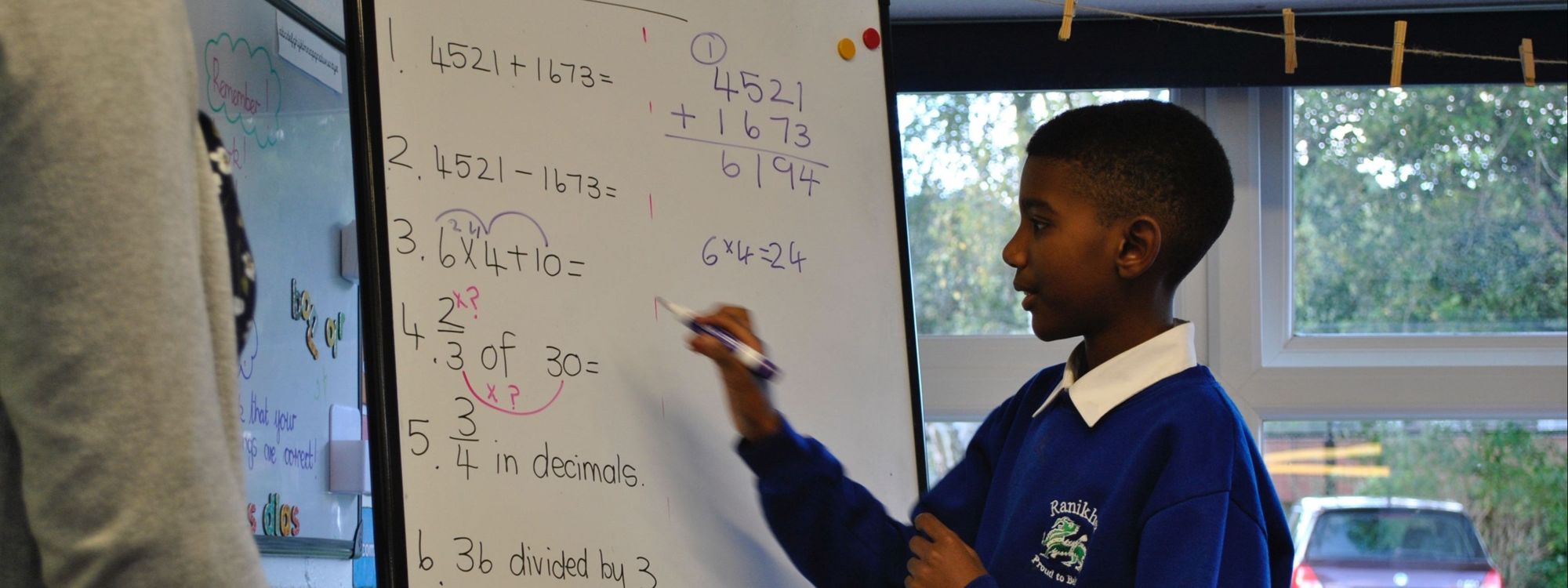- Home
- About Us
- Vision, Values and Aims
Vision, Values and Aims
Vision
‘Proud to Belong'
Being 'Proud to Belong' is:
- belonging to our school community, valuing our similarities and our differences;
- belonging to and being citizens within our wider wonderfully diverse society.
Aims
At Ranikhet Academy we are committed to bringing out the best version of everyone.
We aim to:
- nurture and support children and equip them with the skills, knowledge and attitudes they need to become proud and confident learners and citizens, ready for lifelong learning and positive contribution to society;
- provide a curriculum supporting the diverse learning needs and abilities of our children, in order to prepare them fully for the future lives they are going to lead;
- build on foundational skills and knowledge, to develop strong understanding and confidence in literacy and numeracy, skills that can be transferred to success in learning within all subjects.
Values
Our Values support us to be 'on TRACK' to be our 'best version' and 'Proud to Belong'.
Our Values are:
Teamwork
Resilience
Appreciation
Curiosity
Kindness


Steps to Success for our Ranikhet Child:

Rights Respecting
We are proud to be working towards the Rights Respecting Schools Award by UNICEF, which deepens our pupils’ knowledge of equality, and encourages them to become responsible, active citizens.
There are four key areas of impact for children at a Rights Respecting school; wellbeing, participation, relationships and self-esteem.
- Children are healthier and happier
- Children feel safe
- Children have better relationships
- Children become active and involved in school life and the wider world
Schools involved in the Rights Respecting Schools Award work towards the recognition that they have embedded children’s and young people’s rights in their school’s practice and ethos. Schools are required to implement three evidence-based strands that cover the leadership of the school, knowledge and understanding of children’s rights, ethos and relationships and the empowerment of children and young people.
There are three levels to the Award:

